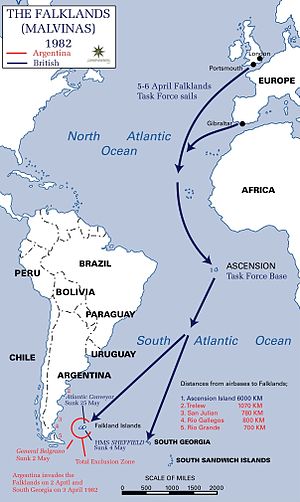The closest to home is in Northern Ireland, where the insistence on parochial parades and the waving of flags has resulted in violence once again between Catholics and Protestants who typically represent the political perspectives of those wishing to remain loyal to the British crown, and those who want to unite with the Republic of Ireland.
The United Kingdom consists of England, Scotland, Wales, and Northern Ireland
Three days of violence began with the Belfast city council decided to stop flying the British flag year round. Protestors have converged on the council headquarters wrapped up in British flags demanding the decision be reversed. Counter protestors have reacted angrily, getting into fights with the flag waving protestors ... and away it goes.
Northern Ireland, with Belfast as the political and administrative center of the entity
Protestors started out at the City Council heaquarters in Belfast ...
... followed up with more strident parades in the streets
Fights, firebombs, and a few stray shots have increased the tensions and stakes between those wishing unification with Ireland, draped in Catholicism, and those clinging to Great Britain, with a tribal identification with Protestantism
Unfortunately, the flare-up of violence and tension cannot be dismissed with a roll of the eyes towards fringe individuals. The past three days are an altogether potent reminder of the "troubles" in Northern Ireland running from the late 1960s to the end - sort of - with the 1998 Belfast "Good Friday" Agreement. During those three decades, over 3500 deaths occurred (civilians and armed forces of police and army) with 45,000 injuries. And untold grief, trauma, economic cost, and opportunities lost.
Argentina again demands its right to govern the Falkland Islands (the Malvinas)
More than 7000 miles away from UK's concern with Northern Ireland, a tiny set of islands in South America is suddenly a repeat source of irritation. Over 30 years ago, as summarized at Wikipedia, "Argentine forces invaded and occupied the Falkland Islands and South Georgia. The British government dispatched a naval task force to engage the Argentine Navy and Air Force, and retake the islands by amphibious assault. The resulting conflict lasted 74 days and ended with the Argentine surrender on 14 June 1982, which returned the islands to British control. During the conflict, 649 Argentine military personnel, 255 British military personnel and 3 Falkland Islanders died."
A geographic look at the UK, Argentina, and the Falkland Islands.
The tension then, and now, is over the legitimacy of who should control the islands. Argentina bases its claim back to Spain's one time possession, the UK counters that that claim is not clear, and that those on the island should have the final say in what country they should retain citizenship.
Argentinan President Cristina Fernandez de Kirchner
The latest claim by Argentina's President Kirchner is the fourth in the past year alone. From a CNN article, "In February of last year, the Argentinian leader accused the British of militarizing the South Atlantic after the Royal Navy sent its warship HMS Dauntless to the region. Then, in June of 2012, Fernandez confronted [UK Prime Minister] Cameron at the G-20 meeting and tried to hand him a letter about the islands -- something he refused to accept.
The dispute flared again ahead of the London 2012 Olympics, when Argentina released a video boosting its Olympic team that was filmed on the islands. The advertisement showed Argentinian field hockey star Fernando Zylberberg training in the streets of Port Stanley in the Falklands. The video ends with the slogan: "To compete on English soil, we train on Argentine soil."
President Kirchner, with appropriate military officials in the background all orchestrated for the media, throws carnations into the Beagle Channel at a ceremony marking the 30th anniversary of the start of the Falkland conflict near the war memorial in Ushuaia Argentina on Monday.
So, Teatree isn't sure of what Fernandez' game is. Perhaps it is deflecting criticism from her own governance issues to one mingled with patriotism, similar to her recent decision to nationalize a Spanish energy company's assets in Argentina (ironic that while that occurred, Argentina bases its claim on an agreement with Spain in 1833 ...)
Whatever the case, the world goes on a swirling with conflict, outrage, vows to remember and revenge, etc. Oh, and epiphany occurs tomorrow, January 6.




No comments:
Post a Comment